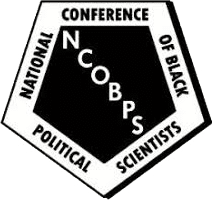The National Conference of Black Political Scientists (NCOBPS) has worked on solidarity initiatives with Afro-Brazilians for the past three decades. Much of this work has been coordinated by the Race and Democracy project of NCOBPS. Several NCOBPS members are also active in the US Network for Democracy in Brazil (USNDB). Recently, there has been a wave of violence against Afro-Brazilians that has accelerated during the presidency of Jair Bolsonaro. In solidarity with Black Brazilians, NCOBPS expresses support of the following USNDB statement on transnational black solidarity.
Transnational Black Solidarity Statement The Afro-Brazilian Committee of the United States Network for Democracy in Brazil is expressing transnational outrage at the increasing violation of human rights in Brazil, especially the recent death of Agatha Felix, an eight-year-old girl who was shot and killed by police in Rio de Janeiro. Fifty-four percent of the Brazilian population is Afro-Brazilian. Despite the size of the population, their lives are under threat. We are most concerned with the following issues: The Anti-Crime Bill, the passing of legislation of DNA collection for those accused of crimes, and the Alcântara Accord.
Our first concern is police violence and executions of Afro-Brazilians. Between January and August 2019, over 1200 people in the state of Rio de Janeiro were killed by police and over 70 percent of those killed were Afro-Brazilian. In contrast, 602 people were killed by police in the United States in the same time period. For an even starker contrast, between 2015 and 2016, 5,811 blacks were killed by police in Brazil compared to 992 people who were killed by police in the USA in 2018. The Anti-Crime Bill is touted as a bill to crack down on gangs. However, too often Black Brazilians are viewed as criminals and innocent people are killed as a result. The Anti-Crime Bill is dangerous as it will lead to an increase in police executions of Black Brazilians. Agatha Felix’s death is an example of the horrific result of militarization of low-income neighborhoods and the danger of the Anti-Crime Bill. Agatha is one of five children killed by the police in Rio de Janeiro this year.
Our second concern is the collection of genetic material of people accused of crimes. DNA of incarcerated people has already been collected in a genetic profile bank. However, the federal government has increased investment in the project so that more states can collect genetic material. The Integrated Network of Genetic Profile Banks is meant to ‘maintain, share, and compare genetic profiles to help in criminal investigation (Pedro Vilela September 19, 2019, Agencia Brasil).’ Our concern is that police officers can request the DNA collection of anyone accused of a crime even when they are innocent.
Our third concern is the threat of quilombo families from their land in the state of Maranhão. The Alcântara agreement or the “Acordo de Salvaguardas Tecnológicas” Safeguard Technologies/ Technologies Safeguard Agreement –permits the United States to utilize the Center of Satellite Launch of Alcântara, Maranhão. On August 20, 2019 the Commission of Exterior Relations and
Defense of Council approved the agreement for ratification in the Brazilian Congress. There was no discussion with community members. Our concern is that an expansion of the satellite program will lead to the expulsion of over 800 quilombo (descendants of runaway/fugitive enslaved people) families. This is one of many examples of the violent displacement of quilombo communities in Brazil.
This statement is written in the decades-long tradition of Black solidarity that spans national borders. This is not the first case of Black transnational solidarity. Blacks across continents have expressed solidarity with each other for many decades. The anti-apartheid campaign in the United States was an example of Black Americans showing solidarity with Black South Africans. The Brazilian anti-police brutality group Reaja ou Será Morto expresses solidarity with all those of African-descent who have been killed by police internationally. In this way, we locate ourselves in a historical milieu where Blacks have expressed solidarity across continents. We want it to be explicitly known that we are paying attention to and condemning the deterioration of democracy and human rights in Brazil, especially as they concern Black lives and Black rights.
We seek the restoration of human rights in Brazil and for low-income, Black communities to be treated with respect and dignity. Black Brazilian communities should not be over-policed and subjected to militarized zones.
Special thanks to Glady Mitchell-Walthour and the following signatories for coordinating this statement: Sharelle Barber, USNDB; Kia Caldwell, USNDB; Juliana Goés, independent researcher; Nia Hampton, USNDB; Michael Hanchard, USNDB; Zakiya Carr Johnson, USNDB; Hannah Moore, USNDB; Dalila Negreiros, USNDB; James Steele, USNDB; Erica Williams, USBDB; Eliseo Jacob, USNDB; Deputado Fábio Felix (PSOL)-President of the Defense of Human Rights, Citizenship, Ethics and Parlamentary Decorum Commission of the Legislative Council of the Federal District; Senator Paulo Paim, President of the Commission of Human Rights of the Federal Senate; Arthur Antonio Santos Araujo- Our Black Collective (Nosso Coletivo Negro); EDUCAFRO; The United Black Movement (Movimento Negro Unificado); and Elisa Larkin Nascimento, Scholar and Activist.
